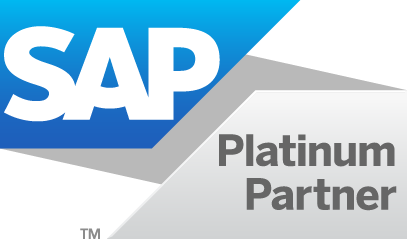What is a Blockchain?
Historically, when it comes to transacting money, people and businesses have relied heavily on intermediaries like banks and governments to ensure trust and certainty. The need for intermediaries is especially acute when making a digital transaction. Because digital assets like money, stocks & intellectual property, are essentially files, they are incredibly easy to reproduce. But what if there was a way of conducting digital transactions without a third-party intermediary? Well, a new technology exists today that makes this possible: Blockchain.
Simply put, a Blockchain is a decentralized database that keeps continuously updated digital records of who owns what. Rather than having a central administrator like a traditional database, (think banks, governments & accountants), a distributed ledger has a network of replicated databases, synchronized via the internet and visible to anyone within the network. This makes the whole process more transparent, less risky and cheaper.
What does Blockchain actually do for my SME in Singapore?
SMEs have been mainly suffering from a lack of financing options. The problem is that banks are becoming reluctant to lend money or lend it at high-interest rates due to the risk in delayed payments.
Blockchain will disrupt the complete trade and supply chain finance industry because of reliability and reduced cost it can provide. The benefits of Blockchain for SMEs include the following:
Payments and money transfers
The most well-known Blockchain application is to send and receive payments. Thus, for SMEs they are able to transfer funds directly and securely to anyone they want in the world almost instantly and at ultra-low fees. That’s because there aren’t any intermediaries slowing down the transfer of funds between several banks and charging outrageous transaction fees.
Smart contracts
Blockchain transactions are known as “smart contracts.” Which are the automated computer protocols that facilitate, verify, and enforce the negotiation and performance of a contract on the Blockchain. They provide a safe and secure way to negotiate, including less fraud and more security, lower transaction costs, faster transaction execution, and no middleman.
Online identity verification
“Blockchain technologies make tracking and managing digital identities both secure and efficient, resulting in seamless sign-on and reduced fraud,” writes Ameer Rosic, founder of Blocgeeks. Blockchain allows a more effective and reliable form of identification of a person without the requirement for third party involvement. This can help SMEs speed up processes and make them more reliable.
Since the first quarter of 2018, Singapore already has its first Blockchain-based digital trade platform for SMEs. Called the Fasttrack Trade (FTT), the platform is a partnership between Prudential Singapore and Starhub.
It allows SMEs to seek business partners and distributors, buy and sell goods, track shipments, receive and make payments, access financing and buy insurance via a single platform. The pioneering platform was developed by fintech startup Cites Gestion with funding from Prudential.
Source: SMEs in Singapore will soon be able to use this blockchain-based trade platform.
The future of Blockchain
Blockchain has application that go way beyond obvious things like digital currencies and money transfers. These applications will be particularly useful for SMEs in a wide range of industries, from Food to Healthcare:
Guaranteed original product
Behind every food item being sold, there’s a story to tell. In China, where food scares are common, many consumers are particularly anxious to hear it. With that in mind, JD, China’s second biggest online shopping has made it possible for customers to look at a detailed history of their steaks—from when the cow was born to what it was eating—before it’s served on their dinner tables. The information is being made available with the help of Blockchain.
“Blockchain holds incredible promise in delivering the transparency that is needed to help promote food safety across the whole supply chain,” says Bridget van Kralingen, senior vice president at IBM Industry Platforms, one of JD’s partners in this initiative. Even Walmart is also joining in with Blockchain initiatives to provide shoppers with more information on their food products.
Healthcare Records
The Blockchain can be used to create a type of universal record with a timestamp, a library that enables data retrieval across diverse databases. This will become exceedingly valuable as precision medicine and the explosion of sensors, wearables and mHealth apps proceeds. The current health systems and the legacy health IT players quite simply are not well designed to manage the volume and types of data that are being generated today. Blockchain will allow the healthcare industry to maintain accurate, real-time patient records.
Conclusion
The opportunity that Blockchain will provide to SMEs can simply not be ignored. From streamlining contracts, to supply chain and trade financing, or to getting access to alternative financing, Blockchain will allow SMEs to compete in ways never seen before. There’s no waiting around for third-party entities to provide relevant information, which also means processing fees are significantly reduced.
NEED HELP WITH YOUR DIGITAL TRANSFORMATION? DON’T HESITATE TO CONTACT US BELOW!
At Axxis Consulting, we pride ourselves in helping SMEs in Singapore and throughout Southeast Asia with their digital transformations through the implementation of SAP software solutions. We offer a range of solutions from SAP Business One (ERP) to SAP Hybris Cloud for Customer. With our in-depth knowledge, the team at Axxis Consulting is able to help you not only decide which solution may be a better fit for your organization, but also help you implement and support whatever solution you choose.















